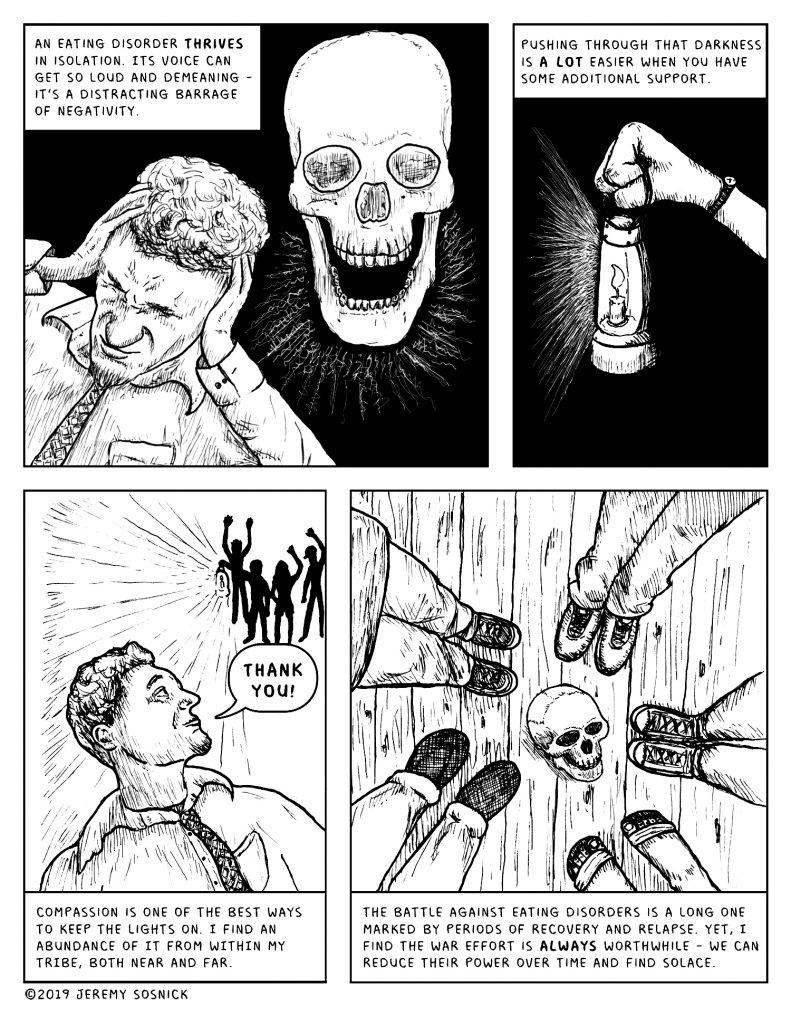Topic Tuesday: Support
 “Finding Your Tribe” (By: Jeremy Sosnick)
“Finding Your Tribe” (By: Jeremy Sosnick)
In the early days of my eating disorder, it took some convincing for me to seek out treatment. The stigma, shame, and embarrassment was real and I’m not the type of person to admit what I perceived as a weakness easily. My anorexia creeped slowly into my life and restricting became a normal habit, especially when my irritable bowel disease would flare up. The eating disorder voice was getting louder and louder. Finally, with some nudging from family and the thought of future complications looming, I decided to start my treatment.
Strength in Support
Trying to manage any eating disorder is a complex challenge but doing so on your own is even harder. I found a ton of benefits in developing my support network – my tribe, as I like to call it. This includes doctors, dietitians, therapists, counselors, friends, family, coworkers, and other members of the eating disorder community who are facing similar struggles. Many of these relationships began from personal recommendations but others were found organically through online searches. That roster may appear overzealous at first glance but the variety in perspectives and experiences has been valuable at every turn. Establishing a support group rapport in periods of recovery help to maintain that recovery for longer while that same tribe can help you bounce back in periods of relapse.
The Battle Ahead
Whether you’re a veteran combatant or a novice to the eating disorder battlefield, there is something to be learned from those around us. A communal healing process is one I’d highly recommend at any point in the recovery journey. Once entering treatment, my perspective shifted: I began viewing my anorexia as a true illness, not as a personal character flaw or something I had chosen on purpose. I don’t expect an easy path to victory but I can’t imagine doing this entirely on my own. Thankfully, I don’t have to.
About the Author
Jeremy Sosnick has dealt with anorexia for a number of years but has found stability in outpatient programs. He’s a black and white illustrator who enjoys telling stories through portraiture and sequential art. Jeremy currently resides in Nashville and enjoys game nights, museum visits, and early morning jogs through the neighborhood.



Comments are closed.